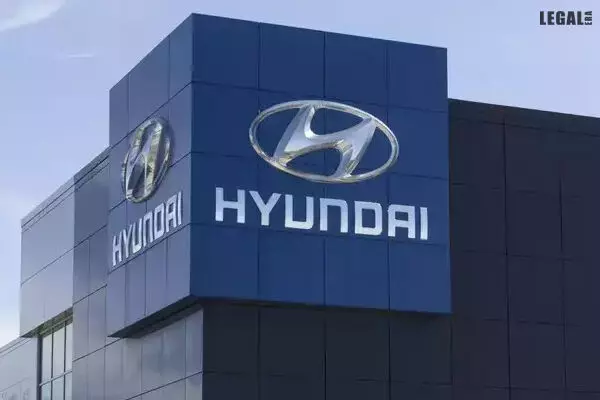- Home
- News
- Articles+
- Aerospace
- AI
- Agriculture
- Alternate Dispute Resolution
- Arbitration & Mediation
- Banking and Finance
- Bankruptcy
- Book Review
- Bribery & Corruption
- Commercial Litigation
- Competition Law
- Conference Reports
- Consumer Products
- Contract
- Corporate Governance
- Corporate Law
- Covid-19
- Cryptocurrency
- Cybersecurity
- Data Protection
- Defence
- Digital Economy
- E-commerce
- Employment Law
- Energy and Natural Resources
- Entertainment and Sports Law
- Environmental Law
- ESG
- FDI
- Food and Beverage
- Gaming
- Health Care
- IBC Diaries
- In Focus
- Inclusion & Diversity
- Insurance Law
- Intellectual Property
- International Law
- IP & Tech Era
- Know the Law
- Labour Laws
- Law & Policy and Regulation
- Litigation
- Litigation Funding
- Manufacturing
- Mergers & Acquisitions
- NFTs
- Privacy
- Private Equity
- Project Finance
- Real Estate
- Risk and Compliance
- Student Corner
- Take On Board
- Tax
- Technology Media and Telecom
- Tributes
- Viewpoint
- Zoom In
- Law Firms
- In-House
- Rankings
- E-Magazine
- Legal Era TV
- Events
- News
- Articles
- Aerospace
- AI
- Agriculture
- Alternate Dispute Resolution
- Arbitration & Mediation
- Banking and Finance
- Bankruptcy
- Book Review
- Bribery & Corruption
- Commercial Litigation
- Competition Law
- Conference Reports
- Consumer Products
- Contract
- Corporate Governance
- Corporate Law
- Covid-19
- Cryptocurrency
- Cybersecurity
- Data Protection
- Defence
- Digital Economy
- E-commerce
- Employment Law
- Energy and Natural Resources
- Entertainment and Sports Law
- Environmental Law
- ESG
- FDI
- Food and Beverage
- Gaming
- Health Care
- IBC Diaries
- In Focus
- Inclusion & Diversity
- Insurance Law
- Intellectual Property
- International Law
- IP & Tech Era
- Know the Law
- Labour Laws
- Law & Policy and Regulation
- Litigation
- Litigation Funding
- Manufacturing
- Mergers & Acquisitions
- NFTs
- Privacy
- Private Equity
- Project Finance
- Real Estate
- Risk and Compliance
- Student Corner
- Take On Board
- Tax
- Technology Media and Telecom
- Tributes
- Viewpoint
- Zoom In
- Law Firms
- In-House
- Rankings
- E-Magazine
- Legal Era TV
- Events
Hyundai Motor Dealers Sue Company For Inflating Electric Vehicle Sales Figures

Hyundai Motor Dealers Sue Company For Inflating Electric Vehicle Sales Figures
A group of Hyundai Motor dealers has filed a lawsuit against the South Korean automaker in a federal court in Chicago, accusing it of inflating sales numbers for electric vehicles and penalizing franchises that refused to participate in the alleged scheme.
Napleton Aurora Imports in Illinois, along with affiliated franchises, lodged the lawsuit on Friday, alleging that Hyundai Motor America Corp. (HMA) pressured dealers to misuse inventory codes intended for loaner vehicles to exaggerate their sales figures.
According to the lawsuit, dealers who complied with the improper coding were rewarded with discounts on wholesale and retail prices, as well as other incentives from Hyundai. The automaker responded on Monday, stating that it does not condone falsifying sales data and had initiated an investigation upon learning of the accusations. Hyundai also mentioned ongoing litigation in South Florida aimed at terminating two Napleton-affiliated franchises linked to separate allegations.
The complaint in Chicago accuses Hyundai of fraud and violating the Robinson-Patman Act, a federal antitrust law prohibiting sellers from discriminatory pricing practices. The lawsuit claims that dealers who participated in the alleged scheme received additional inventory of popular Hyundai models, thereby concentrating desirable stock among fewer dealers, limiting customer choice, and aiding Hyundai in presenting inflated sales figures to the public and investors.
The lawsuit highlighted Hyundai's emphasis on sales volume growth for electric vehicles, suggesting that the company misrepresented market demand as organic growth driven by consumer preference when, according to the plaintiffs, it was actually propelled by manipulated sales reporting.
Alleged statements from a Hyundai district sales manager on a phone call were cited in the lawsuit, referencing the need to achieve specific sales targets for public and corporate perception.
The dealers involved stated that they have suffered losses due to their non-participation in the alleged scheme and are seeking unspecified damages to cover lost sales, revenue, and profits.
Napleton, previously involved in litigation with Chrysler over similar accusations of inflated sales figures, reached a settlement with the automaker in 2019.


